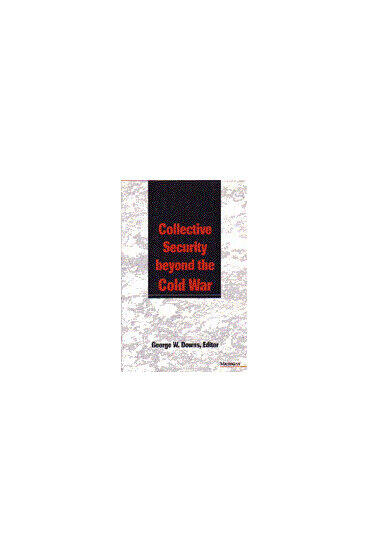Collective Security beyond the Cold War
Addresses theory and history in considering the possibilities for a new system of collective security
Description
The fall of the Soviet empire, like the redistributions of power that followed the fall of Napoleon and the end of the two world wars, has focused attention on schemes that advertise an ability to prevent the return of conflict and promote cooperation. Chief among these is the controversial idea of a new collective security system or a redesigned United Nations. Advocates view such an institution as an inevitable step in human evolution and the basic prerequisite for long-term stability and peace. Critics consider the idea a pipe dream that has been historically and theoretically discredited. This volume reexamines the idea of collective security, weighing the arguments for and against it and assessing its potential for coping with the regional and global security problems of a post-Cold War world. Six of the essays contained herein examine collective security from a theoretical and historical perspective; three evaluate its potential to manage problems in the former Soviet empire, the Middle East, and Europe. The recurring theme of Collective Security beyond the Cold War is the importance of reviewing the potential advantages of ambitious but imperfect collective security systems and the virtues of systems less ambitious than the League of Nations. The factors limiting the potential of collective security systems are no different from those that limit the potential of other forms of state collective action, such as alliances. How great a problem these factors pose for collective security arrangements depends on the design of the system and the setting.

